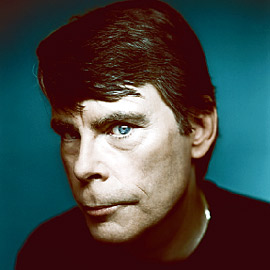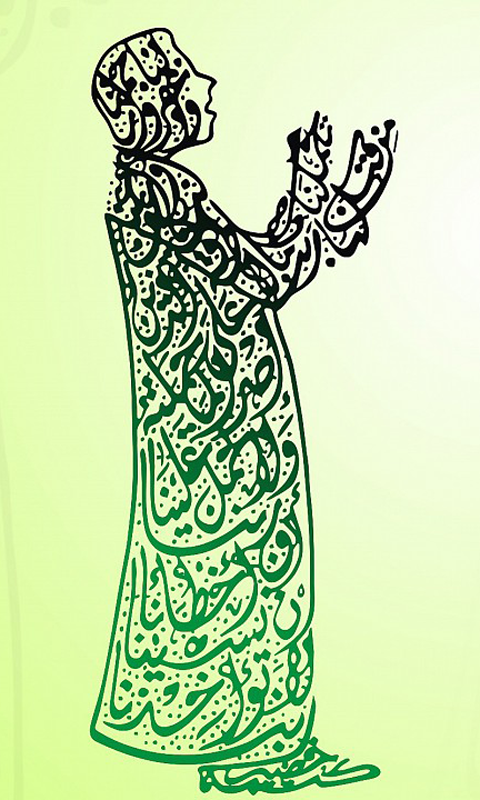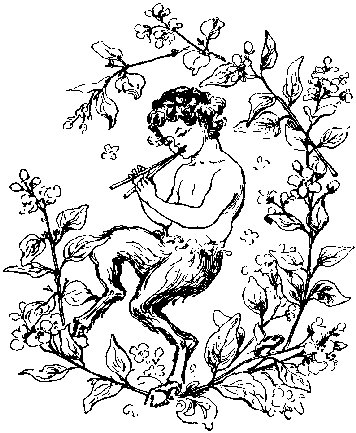The following is Part 2 of an essay by Kris Lawrence. He is a world traveler, philosopher, and producer of both writing and film. With a very fresh perspective on things, Kris is well-worth listening to. Currently, Kris is working on a blog and a podcast revolving around travel and philosophy. Get in touch with him here.
The Poet
Using the notion of the Oversoul as his foundation, many of Emerson's essays act as instruction manuals, prescriptions for how the movement of energy expresses itself in the various functions of life. Or how it ought to, at least. He wrote on Friendship, Experience, Self-Reliance, History, and many others, but to me, his most notable and concrete essay was The Poet.
Emerson probably dedicated an essay to the concept of the writer because it was his own medium of choice and what his personal experience allowed him to know. In The Poet, he asserts the poet, that 'namer of things,' sees the world from a widened perspective and simply uses the people and culture of their world as "secondaries and servants; as sitters or models in the studio of a painter, or as assistants who bring building materials to an architect." To the poet, the rest of the world is a unified metaphor, a toolbox of symbols and images with which to construct the ethereal meaning that is seen in every "grain of sand." A tree is not simply a tree, it is a presence evoked in certain conditions as a reflection of an intangible feeling that exists in a writer's mind. Even as the writer, we may not fully understand why we included a gnarled, solitary Cottonwood by the side of a dry creek bed or a chair tipped over in the living room, but something deep in our mind does. If the writing is genuine, an authentic expression of the feeling coursing through us, it will contain the mysterious traces of a higher will.
"…The poet is the Namer, or Language-maker…giving to every one its own name and not another's…The poets made all the words, and therefore language is the archives of history, and, if we must say it, a sort of tomb for the muses…Each word was at first a stroke of genius, and obtained currency, because for the moment it symbolized the world to the first speaker and to the hearer."
I want to focus on the words "Each word was at first a stroke of genius." Contained within that simple phrase is the crux of what Emerson is saying. At one time, a word was more than an inert, static symbol. It was a revelation unto itself. Before the formal rules of language were established, the human bent to symbolic assignment must have been necessarily intuitive. By that I mean that our early ancestors didn't have the left-brain, linear logic to gather and collectively decide that the best way to explain an animal was to call it an animal (or whatever their expression for it was). Rather, it was a spontaneous movement arising through their mind, rather than from it. A primal utterance expressed out of an unwavering connection to natural authenticity. We couldn't quantify or measure the process even if we wanted to. Hence the eternal mystery of genius.
"The condition of true naming, on the poet's part, is his resigning himself to the divine aura which breathes through forms, and accompanying that…The poet knows that he speaks adequately, then, only when he speaks somewhat wildly, or, 'with the flower of the mind…' with the intellect released from all service, and suffered to take its direction from celestial life."
The poet, especially in modern times, is seen as a luxury of a bygone era. We are situated so deeply in the linear left brain paradigm that we have collectively agreed to forget about the immensity of the immeasurable. As a culture, we want nothing to do with that which cannot be reduced and recorded by our fetishized technology and swollen pride. To be humbled is to be rendered irrelevant. We still believe that we will eventually create a lasting image of ourselves, or that we already have; that the movement of nature has achieved its pinnacle and the energy frozen in our material mausoleums is the final resting place of evolution. The poet is the recorder of the now, the dutiful transcriber of what our world has become regardless of the archaic notions that still linger in the deep catacombs of our minds. The poet and the mythologist alike understand that our symbols are dead, and that to truly move forward will require a new found ability to submit to life as it is, right now.
"Here is the difference betwixt the poet and the mystic, that the last nails a symbol to one sense, which was a true sense for a moment, but soon becomes old and false. For all symbols are fluxional; all language is vehicular and transitive, and is good, as ferries and horses are, for conveyance, not as farms and houses are, for homestead. Mysticism consists in the mistake of an accidental and individual symbol for an universal one."
Language is transitory, just like the rest of life. Even from the time of Emerson's writing, a mere 170 years ago, the American dialect has changed radically. While this fact becomes obvious at a simple scan through a 19th century book, what remains hidden is the extent to which we place a sense of permanent reality in our linguistic constructs. We believe in our words, and we believe in the world they create in our minds. We have lost sight of language as a tool, an approximation of life, and as a result our own inner worlds, our very identities, are manipulated by the language-makers of the culture.
For example, let's look at the word "freedom," one of the US government's favorite catchphrases. We are told that we are free, that our wars are an extension of that freedom to the oppressed, that in this country we have the freedom to make something of ourselves, the freedom to speak as we wish, the freedom to change. The word, by its very nature, evokes positive feelings. What could be more valuable to a human being than freedom? However, if we stop to analyze the reality of freedom today, we are left with the wispy fragments of a dream long dead.
From Rogets: Free-dom n. 1. the power or right to act, speak, or think as one wants without hindrance or restraint. 2. absence of subjection to foreign domination or despotic government. 3. the state of not being imprisoned or enslaved.
As the power structures of the planet frantically try to patch the leaks the internet has put in the hull of their Titanic, we have seen the definition of 'freedom' changing radically. No longer does a US citizen have the power or the right to act, speak or think without hindrance. New laws have been put in place to restrict the ability to congregate and protest, one of our top ten (amendments) most important freedoms. And I wonder how 'free' the people of the Middle-East feel from "subjection to foreign domination or despotic government" in the wake of ongoing wars? Many other examples abound.
The simple fact is that language has made us believe we are free when in reality we have simply lost sight of what that word, that symbol, actually represents.
To believe your own thought, to believe that what is true for you in your private heart is true for all men,--that is genius.
Self Reliance
In the final section of this article, I want to focus on Emerson's most popular essay, Self Reliance, because I think it provides a kind of antidote to the entropy of post-modern existence. In the essay, Emerson berates the group-think of societies and bemoans the loss of our human birthright, the understanding that the answers we seek are contained within our own selves.
"Society everywhere is in conspiracy against the manhood of every one of its members. Society is a joint-stock company, in which the members agree, for the better securing of his bread to each shareholder, to surrender the liberty and culture of the eater."
In the words of the great Terence McKenna, "Culture is not your friend." Culture--ours, China's, Brazil's, North Korea's--is a system, first and foremost, of convenience. It is designed to expedite the process of living and bring efficiency and order to large groups of people. In its unconscious construction, culture arose out of basic biological needs and the dictates of its stories are a reflection of realities we no longer face. Take for example one of culture's most pervasive effects upon the human mind, the almighty need to fit in. In prehistoric days, being exiled from the group was a death sentence. A naked and weak ape, when alone, almost certainly perishes at the hands of natural forces. A group of those same apes, armed with frontal cortexes and the ability to collaborate, however, thrives. Fitting in, following the rules, and buying the newest Nike shoes all arise from this direct perception of the mortal danger lurking outside the firelight of society. It's a knee jerk reaction, a facet of the modern self buried so far in the past as to be completely unconscious.
"The objection to conforming to usages that have become dead to you is, that it scatters your force. It loses your time and blurs the impression of your character. If you maintain a dead church, contribute to a dead Bible-society, vote with a great party either for the government or against it…under all these screens I have difficulty to detect the precise man you are."
What Emerson is talking about is the problem that has faced humanity since the dawn of agriculture. The problem of authority.
Authority is the focal point from which human beings live their lives. It's a fixation, both a cause and a result. It's a habit of perception that once established, has proven nearly impossible to change. It's nothing less and nothing more than the obscure power that we give our lives over to, the yearning for answers--and the satisfied burp we emit when they are provided. What we've lost is the ability to discern true authority from false.
"Let us affront and reprimand the smooth mediocrity and squalid contentment of the times, and hurl in the face of custom, and trade, and office, the fact which is the upshot of all history, that there is a great responsible Thinker and Actor working wherever a man works; that a true man belongs to no other time or place, but is the center of things. Where he is, there is nature."
We have given over the authority owed to Nature to the systems of governance and religion we have been tricked into believing we love. In reality, we don't love democracy, we love the autonomy it represents, just as we don't love communism but the spirit of community it attempts to engender. We sigh with disgust at the state of the world, the corruption of our leaders, the inequalities in our systems of supposed sophistication and in the same breath secretly languish in the comfort they provide; the answers freely given that spare us the effort of looking for our own. We allow the flow of life to be frozen in the glaciers of a machine that claims to have it all figured out. And for this misplacement of authority, we suffer greatly.
"Whoso would be a man must be a nonconformist. He who would gather immortal palms must not be hindered by the name of goodness, but must explore if it be goodness. Nothing is at last sacred but the integrity of your own mind. Absolve you to yourself, and you shall have the suffrage of the world."
I hope in these days we have heard the last of conformity and consistency. Let the words be gazetted and ridiculous henceforward…Let us never bow and apologize more.
Be your own authority. That's the message behind everything Ralph Waldo Emerson ever wrote. He wasn't talking about the trifling ideas of a socially enculturated mind, either. In seeking your own authority, Emerson meant to describe the process of turning inside to find the higher power that both brought you to this Earth and will soon take you away. He meant the force that urges your heart to beat, that stimulates the bacteria in your stomach to digest, that fights off infections, and keeps your lungs rising and falling even when you sleep. The simple force of life that keeps the whole show going against impossible odds. That's the real authority and the one with all the answers.
"The inquiry leads us to that source, at once the essence of genius, of virtue, and of life, which we call Spontaneity or Instinct…In that deep force, the last fact behind which analysis cannot go, all things find their common origin."
I wonder what Emerson would say of the world today? How would he view the demigod of the internet, the muse of cable television, the assumed permanence of the nation-state? Would he see any hope amidst our collective delusions? I think so.
Emerson was a chairman of simplicity, and I think that now, just as in the 19th century, the simple force of life works behind the scenes of our racing minds, patiently watching and waiting for us to remember, or to arrive.
Slowly, painfully, it seems that we are coming back to the knowledge that has existed all along: That we are part of the picture, separate only in our minds. One thought at a time, we are taking back our symbols and reviving our devotion to the only authority that will ever exist. Thanks for the reminder, Ralph.
There are a few ways you can be a hero and support AJ. Free things are: try Audible or AmazonPrime for 30 days, link us to a social network like Twitter, Facebook or Reddit, or download and rate the podcast in iTunes. If you have a little spare money you can send a Paypal donation to ajsnookauthor@gmail.com, buy one of AJ's Kindle eBooks, or buy anything on Amazon by going through the Amazon links on the site. Thanks so much for your support, AJ
 I ride my unicycle as a form of meditation, feels the young girl. She feels it rather than says it because the genius of youth is its intuition. It need not be able to articulate wisdom in order to understand it. I sometimes play my handheld video game while I ride. My soul watches the road from inside my chest, inside my finite heart. She turns up the corners of her mouth in ecstasy. I know a secret right now, one that's only digestible in the present moment, like an untellable joke for the ages. Her meditation gets lambasted by adults as unproductive, solitary, weird, sometimes rascally. Child's play that will wear off its luster come maturity. I ride my unicycle as a form of meditation, she repeats from her heart, shooting her message into the hearts of others like laser beams. Join me if you're brave enough, courageous enough to live outside of time, outside of language, to be conscious forever in the singular peace of the moment.
I ride my unicycle as a form of meditation, feels the young girl. She feels it rather than says it because the genius of youth is its intuition. It need not be able to articulate wisdom in order to understand it. I sometimes play my handheld video game while I ride. My soul watches the road from inside my chest, inside my finite heart. She turns up the corners of her mouth in ecstasy. I know a secret right now, one that's only digestible in the present moment, like an untellable joke for the ages. Her meditation gets lambasted by adults as unproductive, solitary, weird, sometimes rascally. Child's play that will wear off its luster come maturity. I ride my unicycle as a form of meditation, she repeats from her heart, shooting her message into the hearts of others like laser beams. Join me if you're brave enough, courageous enough to live outside of time, outside of language, to be conscious forever in the singular peace of the moment.







